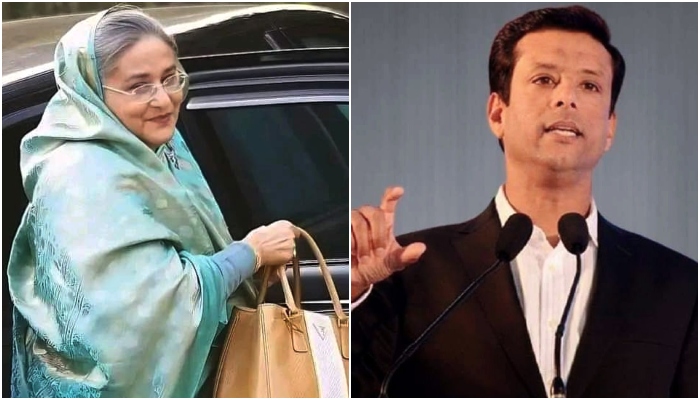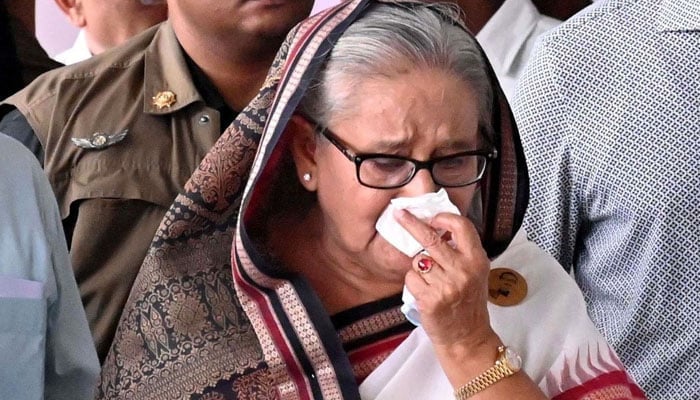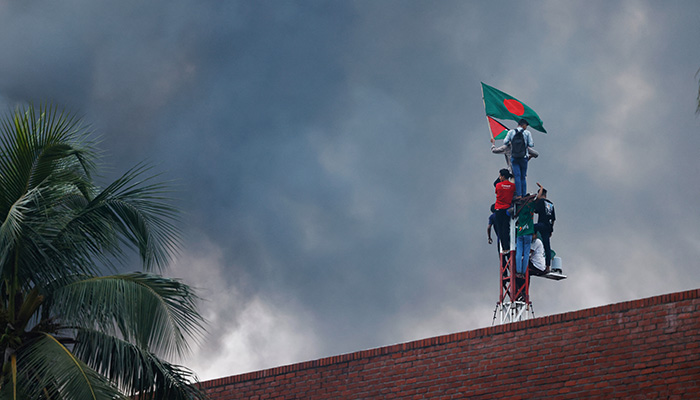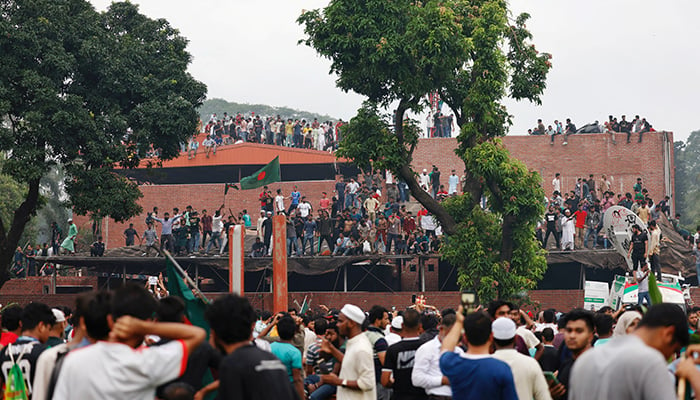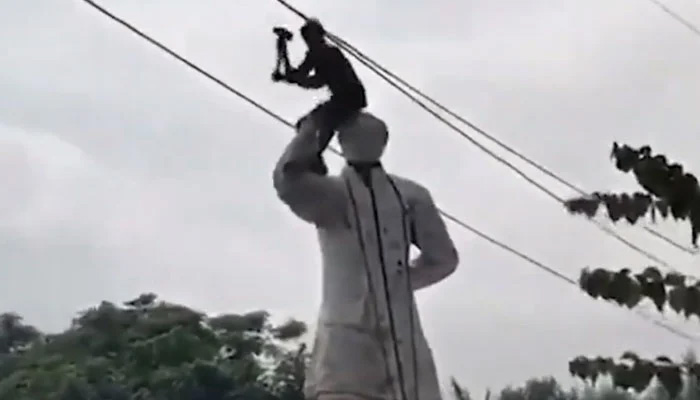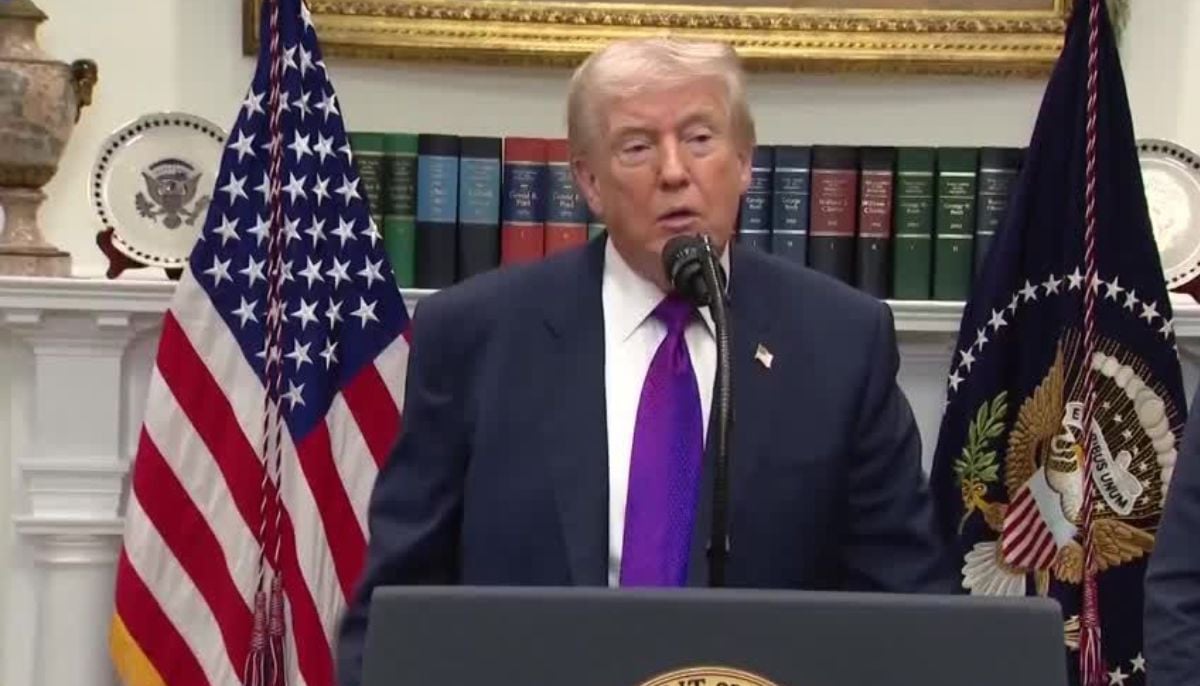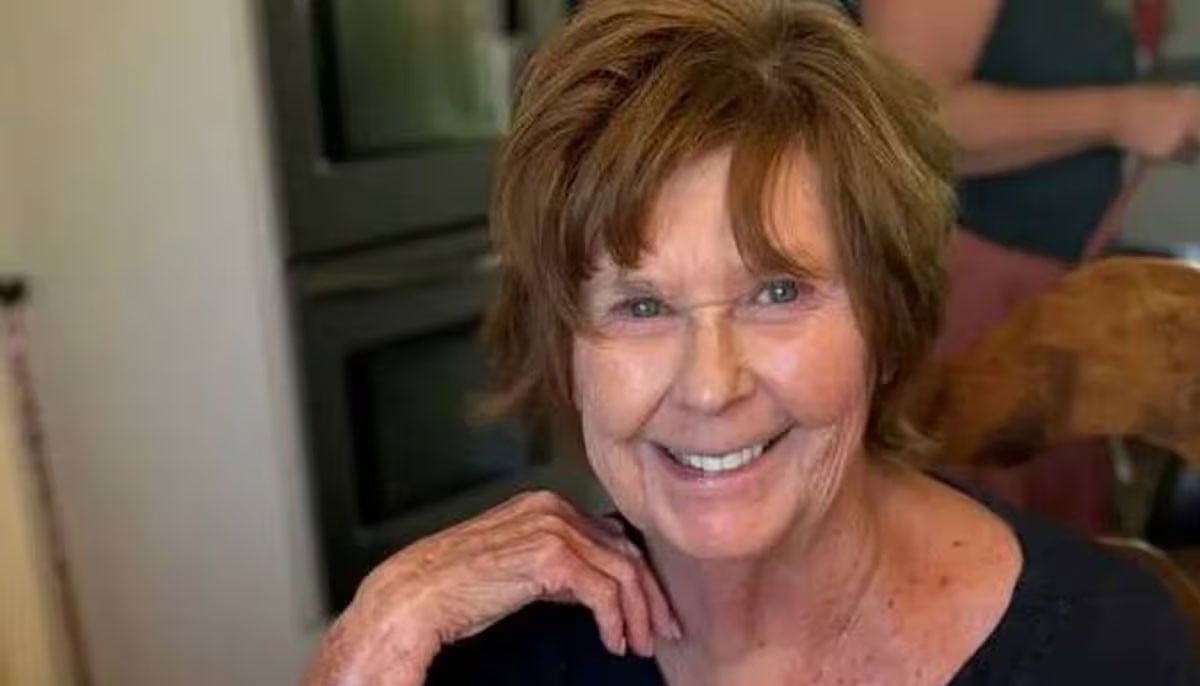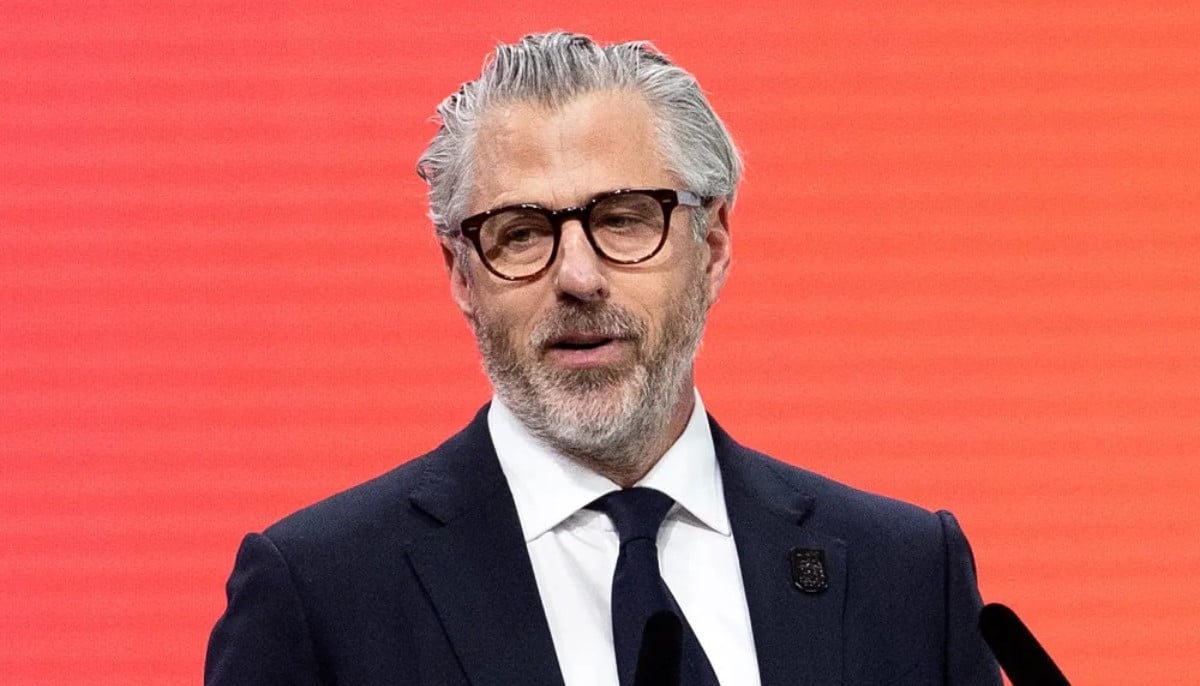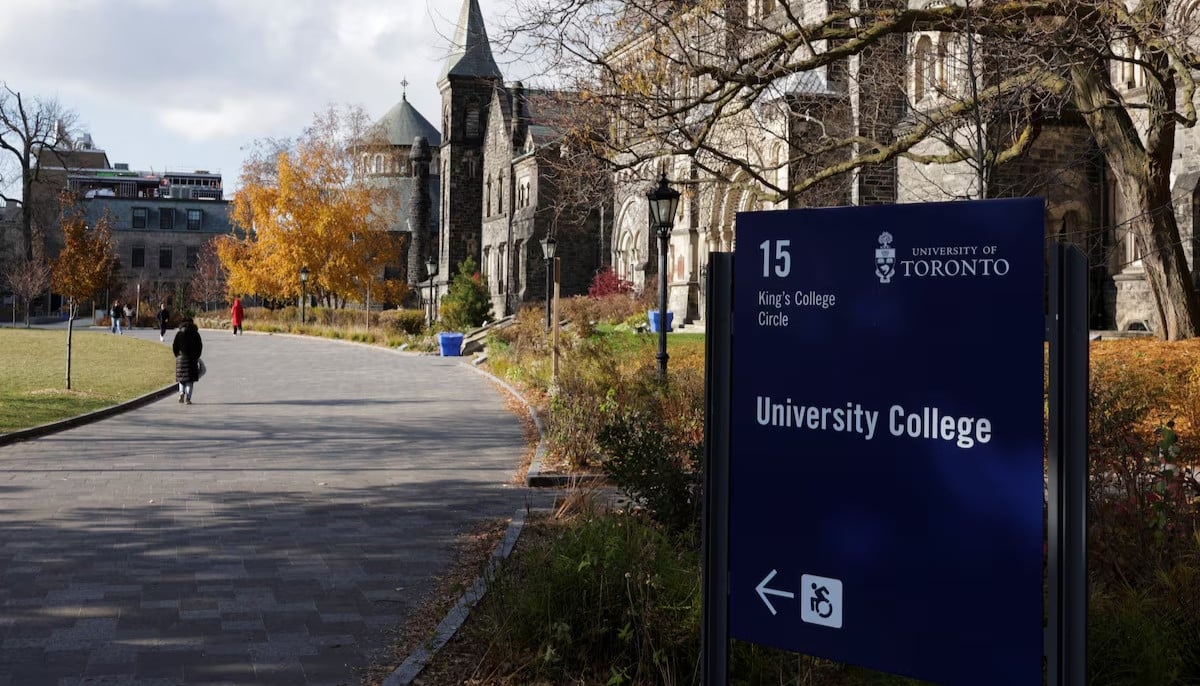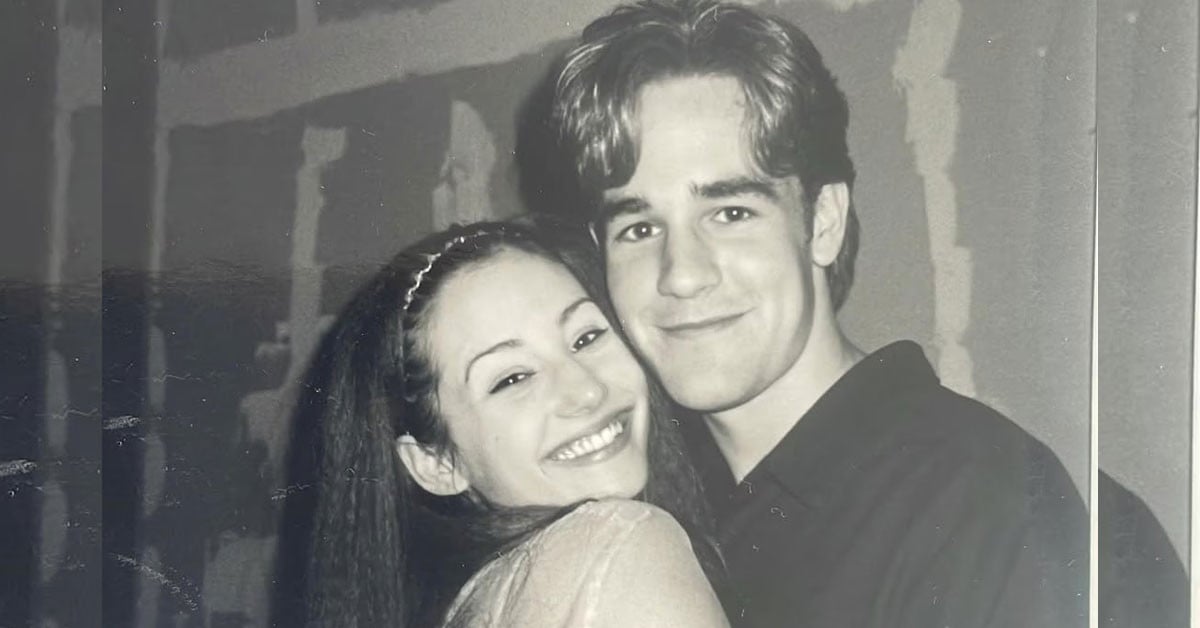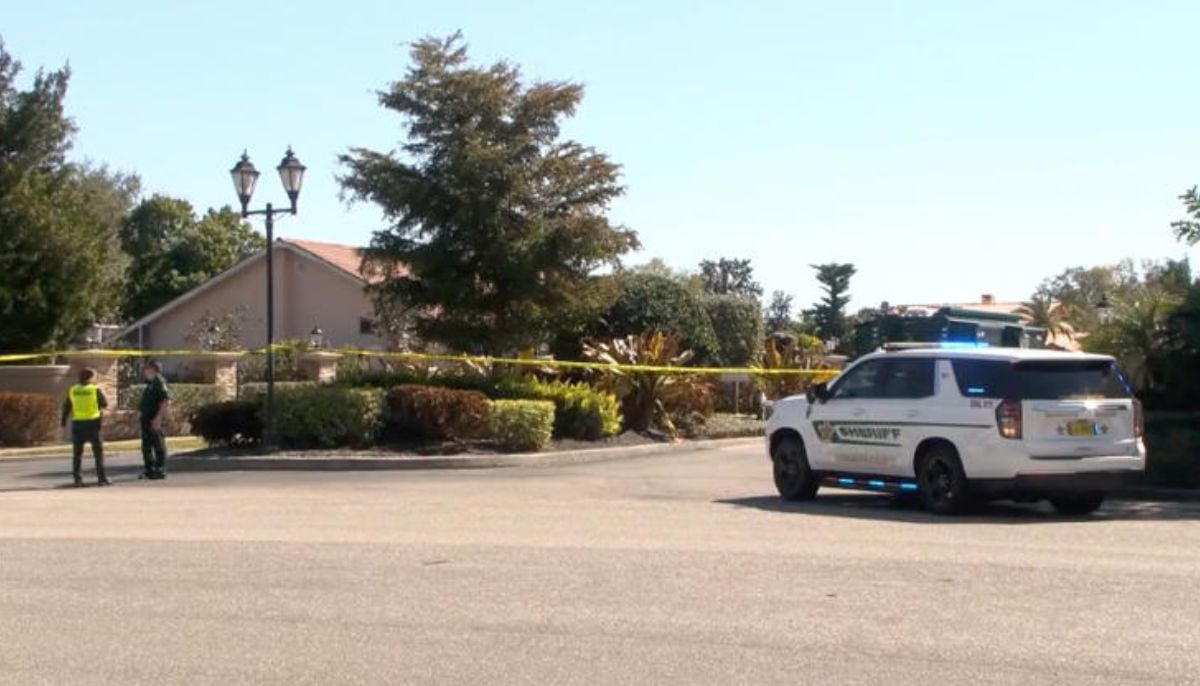Sheikh Hasina not intending to make political comeback, says son
Sajeeb Wazed Joy says her mother is "disappointed" and left country for her own safety
Son of Bangladesh prime minister Sheikh Hasina, whose 15-year rulership came to an end on Monday following deadly anti-government protests, Sajeeb Wazed Joy said that she left the country for her own safety and was not willing for a political comeback.
Hasina resigned and fled the country earlier today, as more people were killed in some of the worst violence since the birth of the South Asian nation more than five decades ago.
"My mother had been considering resigning since yesterday," said Sajeeb — an official adviser of the ex-Bangladesh PM until today — while speaking to Newshour on the BBC World Service.
He added that Hasina left the country for her own safety after her family insisted.
He further said that her mother did not intend to make a political comeback as she was "so disappointed that after all her hard work, for a minority to rise up against her".
"She has turned Bangladesh around. When she took over power it was considered a failing state. It was a poor country. Until today it was considered one of the rising tigers of Asia. She's very disappointed," he defended her mother’s record in power.
While rejecting the accusations against the deposed Hasina-led administration for unleashing violence on the anti-government protesters, he said: “You’ve had policemen beaten to death — 13 just yesterday. So what do you expect the police to do when mobs are beating people to death?”
It is noteworthy to mention here that at least 300 people were killed in more than a month of deadly protests that ended the autocratic rule of the 76-year-old prime minister.
Army chief General Waker-Uz-Zaman announced Hasina's resignation in a televised address to the nation and said an interim government would be formed.
The role of the country's army in tackling the violence had come into focus with a group of retired military officers urging Hasina to withdraw troops from the streets and undertake "political initiatives" to resolve the crisis.
Media reports said Hasina, 76, was flown in a military helicopter with her sister and was headed to India. The CNN News 18 television channel said she had landed in Agartala, the capital of India's northeastern state of Tripura, across the eastern border of Bangladesh.
The politico chose India to spend her days of self-exile for the second time as she earlier spent six years in Delhi's Pandara Road under an assumed identity after the assassination of her father — Sheikh Mujibur Rahman — and other family members in 1975.
The development came after student activists had called for a march to the capital Dhaka on Monday in defiance of a nationwide curfew to press Hasina to resign, after deadly clashes across the country on Sunday killed nearly 100 people, including at least 13 policemen.
Television visuals showed thousands of people pouring into the streets of the capital Dhaka in jubilation and shouting slogans. Thousands also stormed Hasina's official residence 'Ganabhaban', shouting slogans, pumping fists and showing victory signs.
Crowds thronged the drawing rooms of the residence, and some people could be seen carrying away televisions, chairs and tables from what was one of the most protected buildings in the country.
Protesters in Dhaka also climbed atop a large statue of independence leader Sheikh Mujibur Rahman, Hasina's father, and began chiselling away at the head with an axe, the visuals showed.
Critics of Hasina, along with human rights groups, have accused her government of using excessive force against protesters, a charge she and her ministers deny.
— Additional input from Reuters
-
Casey Wasserman to remain LA Olympics chair despite Ghislaine Maxwell ties
-
Gigi Hadid feels 'humiliated' after Zayn Malik's 'pathetic' comment: Source
-
Ontario tuition freeze ends, allowing colleges and universities to raise fees
-
James Van Der Beek’s 'heartbroken' ex wife breaks silence of his death
-
Kylie Kelce breaks silence on 'beef' with Dwayne Wade
-
Suspect kills six across Florida before taking his own life
-
Savannah Guthrie shares sweet childhood video with missing mom Nancy: Watch
-
Piers Morgan praised by Ukrainian President over 'principled stance' on Winter Olympics controversy
